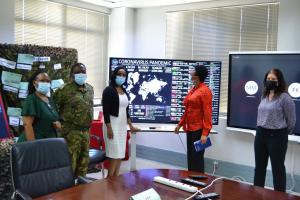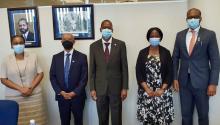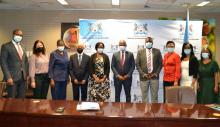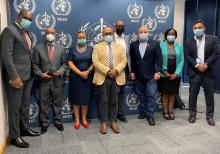Enhancing Botswana`s emergency preparedness and response capacity beyond COVID-19: The SURGE Initiative
Each year, more than 100 health emergencies occur in the African Region, including infectious disease outbreaks including cholera, yellow fever, meningitis, measles, Ebola, and more recently the COVID-19 pandemic. Most of these emergencies are preventable and controllable with proven public health interventions.
Having acknowledged the gap in countries being prepared for such events, the World Health Organisation regional office initiated the Strengthening and Utilizing Response Groups for Emergencies (SURGE) flagship initiative in each of the 47 countries in the WHO region. The aim of the initiative is to ensure governments are better equipped to mobilize and respond to future public health emergencies within the first 24 to 48 hours of confirmation.
Based on the government’s expressed interest, Botswana is one of the first countries where SURGE will be implemented. Between 21 and 25 March 2022, the Ministry of Health and Wellness (MoHW) and the WHO Botswana country office hosted a scoping mission of the Emergency Preparedness and Response (EPR) Team from WHO AFRO to introduce the regional initiative to key stakeholders. Led by the national governments, the highest priority of the SURGE initiative is to strengthen existing structures and capacities at the country level to provide the surge technical, operational, and logistical support Botswana needs to mitigate crises more efficiently, limit interruption of life-saving health services, minimize economic and social effects, and contribute to raising the level of healthy security.
The Minister of Health and Wellness, Dr Edwin Dikoloti, welcomed the mission and acknowledged the great timing of the WHO initiative saying that “the current pandemic offered the country the opportunity to prove the strengths and weaknesses of the public health services. It has reinforced the need for robust capacity to prevent, prepare for, detect and respond to emergencies in Botswana”.

SURGE is supported by sub-regional centres of excellence in Western Africa (Dakar), Eastern/Central Africa (Nairobi), and Southern Africa (Cape Town). With support from the WHO Academy, the centres will take on a variety of sub-regional activities, including maintaining stockpiles of medical and logistical supplies, on-boarding and training a multi-disciplinary team of human resources to serve as SURGE members, and stationing WHO AFRO Health Emergencies Programmes staff to ensure quick deployment during emergencies.
Aware of the fact that the public health emergencies often fuel socio-economic disruption, undermining decades of hard-earned health and economic gains, H.E. Elias Magosi the Executive Secretary of the Southern African Development Community (SADC) also expressed support for the SURGE initiative in Botswana.
Following the HIV epidemic, the next major public health emergency crisis experienced by Botswana was COVID-19 which tested the country’s preparedness and response systems. COVID-19 has exposed gaps including a limited health workforce, weak coordination mechanisms, weak health systems and limited stockpiles, among others. Botswana and the entire region have made tremendous progress guided by various global, regional, and country conventions and frameworks, including the International Health Regulations (IHR, 2005), the Technical Guidelines for Integrated Disease Surveillance and Response (IDSR), as well as the National Action Plans for Health Security (NAPHS). Since 2017, the median time to end outbreaks has improved, decreasing from 131 days to 45 days in 2019. The SURGE initiative aims to reduce this further.
The WHO AFRO SURGE mission led by Dr Wondi Alemu accompanied by the WHO national technical officers presented to the multi-sector partners, including the UN, diplomatic missions and contributors in Botswana, the following four pillars of work:
- Workforce Development, to ensure availability of trained human resources at the national and sub-national levels.
- Response Readiness and Coordination to improve planning and cohesiveness across ministries, partner agencies and civil society organizations.
- Operations Support and Field Logistics to ensure efficient deployment of human resources and emergency supplies at the national and sub-national levels.
- Risk Communications and Community Engagement (RCCE) to convey public health threats transparently and in a timely and coordinated manner through mechanisms built into National health security planning processes.
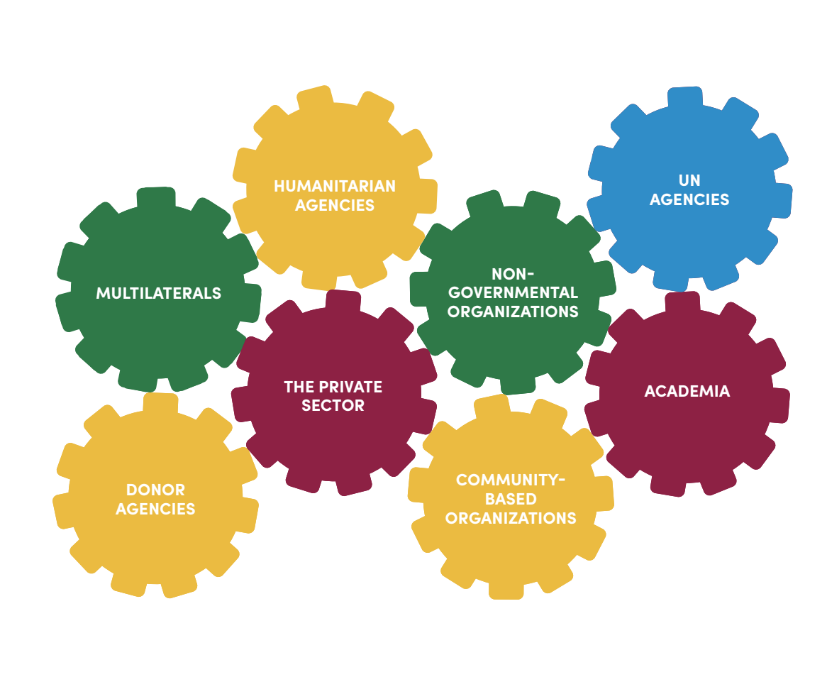 Through the flagship initiative, the WHO AFRO EPR team will also forge and strengthen partnerships with UN agencies, multilateral, donor agencies, humanitarian agencies, the private sector, non-governmental organizations, and community-based organizations.
Through the flagship initiative, the WHO AFRO EPR team will also forge and strengthen partnerships with UN agencies, multilateral, donor agencies, humanitarian agencies, the private sector, non-governmental organizations, and community-based organizations.
With the Government of Botswana playing a leadership role, the health emergency architecture must be driven by and responsive to the unique needs of communities and the country. As such, a unique roadmap and set of collaborations will be developed. Ishata Conteh, RCCE focal point of the SURGE team stated that “In every community, mechanisms will be established to incorporate regular community-level input as well as engage with community leaders.”
At the end of an intense week of briefing meetings and consultations with partners, workshops with multi-sectoral technical teams and planning sessions, the Honorable Minister Dr Edwin Dikoloti, together with the Permanent Secretary Mrs Grace Mozilla, who closely supported the SURGE team throughout the mission, assured WHO of the government’s highest engagement. The political commitment will shortly materialize in a Memorandum of Understanding and a costed roadmap for the rollout of the SURGE initiative in Botswana.
